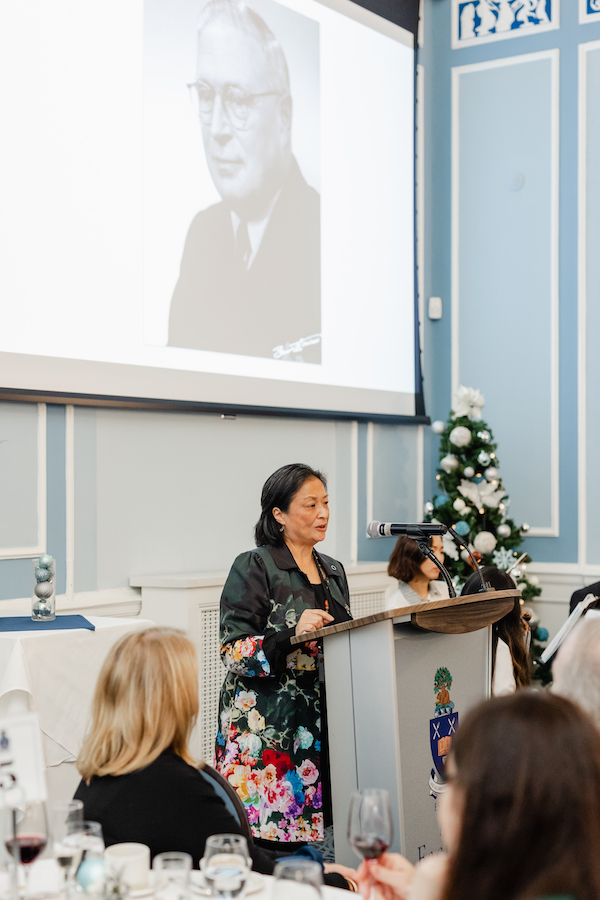By Dr Alison Li, Historian of medicine
100th Anniversary dinner celebrating the Nobel prize to banting and macleod, November 27, 2023

Good evening, I am Alison Li and it is my privilege to pay tribute to James Bertram Collip. Late one wintery night just over one hundred years ago, biochemist James Bertram Collip was doing what he loved best: working alone in his lab in the quiet, still hours. On January 19, 1922, he watched a relatively pure white substance precipitate out of solution. As one colleague put it: “Collip then actually saw insulin.”
Four days later, this new extract was tested on Leonard Thompson with striking results. Thompson felt stronger, brighter, and more active, and his blood sugar fell to normal levels.
In a stunning 42 days, Collip had accomplished what had eluded other researchers for decades. This was the first clinically successful use of insulin in the treatment of diabetes. The discovery of insulin was a watershed in Collip’s life. He would thereafter turn his focus exclusively to isolating hormones of value in treating disease. His drive and talent would lead him to become one of the most eminent and productive medical scientists in the country.
In 1928, he became chair of biochemistry at McGill University. In the lab, Collip loved spending long hours at his still, brewing extracts from large vats of glands, rushing back and forth adjusting this or that mixture, all the while smoking large hand-rolled cigarettes. His thriving team produced work of international significance with over 200 publications on pituitary and placental hormones. His collaboration with the small pharmaceutical firm Ayerst, McKenna and Harrison, would lead directly to the development of Premarin which is used in hormone replacement therapy and which would by the end of the 20th century become the top-selling prescription product in the world.
Collip became reconciled with Banting and both regretted their unfortunate misunderstandings of the insulin days. He was the last friend to see Banting before Banting’s tragic death in 1941. Collip took over Banting’s mantle of overseeing medical research during the Second World War and went on to take a leading role in shaping the coordination and funding of medical research across Canada in the post-war period. In 1947, he became dean of medicine at the University of Western Ontario, where he enjoyed the challenge of building up its medical school during an era of rapid expansion.
Collip received many honorary degrees and awards in his lifetime but never became the household name that Banting and Best have. Historians such as Michael Bliss have argued that he probably should have been awarded the Nobel Prize along with Banting and Macleod.
When it came to the insulin discovery, Collip always modestly said that he had only done what any good biochemist would have done. But what is even more to the point is that he always recognized that the endeavour had been a collaborative one. So this evening, let us pay tribute to Collip’s ingenuity, hard work and quiet humility, his thrill in scientific exploration, and most of all, his deep sense that he was taking part in a collective enterprise.
Back to >> Dinner Program and Speeches